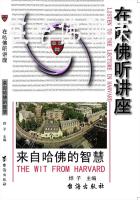In this discourse, Nietzsche wishes to give his followers a warning. He thinks he has so far helped them that they have become convalescent, that new desires are awakened in them and that new hopes are in their arms and legs. But he mistakes the nature of the change. True, he has helped them, he has given them back what they most need, i.e., belief in believing--the confidence in having confidence in something, but how do they use it? This belief in faith, if one can so express it without seeming tautological, has certainly been restored to them, and in the first flood of their enthusiasm they use it by bowing down and worshipping an ass! When writing this passage, Nietzsche was obviously thinking of the accusations which were levelled at the early Christians by their pagan contemporaries. It is well known that they were supposed not only to be eaters of human flesh but also ass-worshippers, and among the Roman graffiti, the most famous is the one found on the Palatino, showing a man worshipping a cross on which is suspended a figure with the head of an ass (see Minucius Felix, "Octavius"IX.; Tacitus, "Historiae" v. 3; Tertullian, "Apologia", etc.). Nietzsche's obvious moral, however, is that great scientists and thinkers, once they have reached the wall encircling scepticism and have thereby learned to recover their confidence in the act of believing, as such, usually manifest the change in their outlook by falling victims to the narrowest and most superstitious of creeds. So much for the introduction of the ass as an object of worship.
Now, with regard to the actual service and Ass-Festival, no reader who happens to be acquainted with the religious history of the Middle Ages will fail to see the allusion here to the asinaria festa which were by no means uncommon in France, Germany, and elsewhere in Europe during the thirteenth, fourteenth, and fifteenth centuries.
Chapter LXXVIII. The Ass-Festival.
At length, in the middle of their feast, Zarathustra bursts in upon them and rebukes them soundly. But he does not do so long; in the Ass-Festival, it suddenly occurs to him, that he is concerned with a ceremony that may not be without its purpose, as something foolish but necessary--a recreation for wise men. He is therefore highly pleased that the higher men have all blossomed forth; they therefore require new festivals,--"Alittle valiant nonsense, some divine service and ass-festival, some old joyful Zarathustra fool, some blusterer to blow their souls bright."He tells them not to forget that night and the ass-festival, for "such things only the convalescent devise! And should ye celebrate it again," he concludes, "do it from love to yourselves, do it also from love to me! And in remembrance of ME!"Chapter LXXIX. The Drunken Song.
It were the height of presumption to attempt to fix any particular interpretation of my own to the words of this song. With what has gone before, the reader, while reading it as poetry, should be able to seek and find his own meaning in it. The doctrine of the Eternal Recurrence appears for the last time here, in an art-form. Nietzsche lays stress upon the fact that all happiness, all delight, longs for repetitions, and just as a child cries "Again! Again!" to the adult who happens to be amusing him; so the man who sees a meaning, and a joyful meaning, in existence must also cry "Again!" and yet "Again!" to all his life.
Chapter LXXX. The Sign.
In this discourse, Nietzsche disassociates himself finally from the higher men, and by the symbol of the lion, wishes to convey to us that he has won over and mastered the best and the most terrible in nature. That great power and tenderness are kin, was already his belief in 1875--eight years before he wrote this speech, and when the birds and the lion come to him, it is because he is the embodiment of the two qualities. All that is terrible and great in nature, the higher men are not yet prepared for; for they retreat horror-stricken into the cave when the lion springs at them;but Zarathustra makes not a move towards them. He was tempted to them on the previous day, he says, but "That hath had its time! My suffering and my fellow suffering,--what matter about them! Do I then strive after HAPPINESS? I strive after my work! Well! the lion hath come, my children are nigh. Zarathustra hath grown ripe. MY day beginneth: ARISE NOW, ARISE, THOU GREAT NOONDAY!"...
The above I know to be open to much criticism. I shall be grateful to all those who will be kind enough to show me where and how I have gone wrong;but I should like to point out that, as they stand, I have not given to these Notes by any means their final form.
ANTHONY M. LUDOVICI.
London, February 1909.















